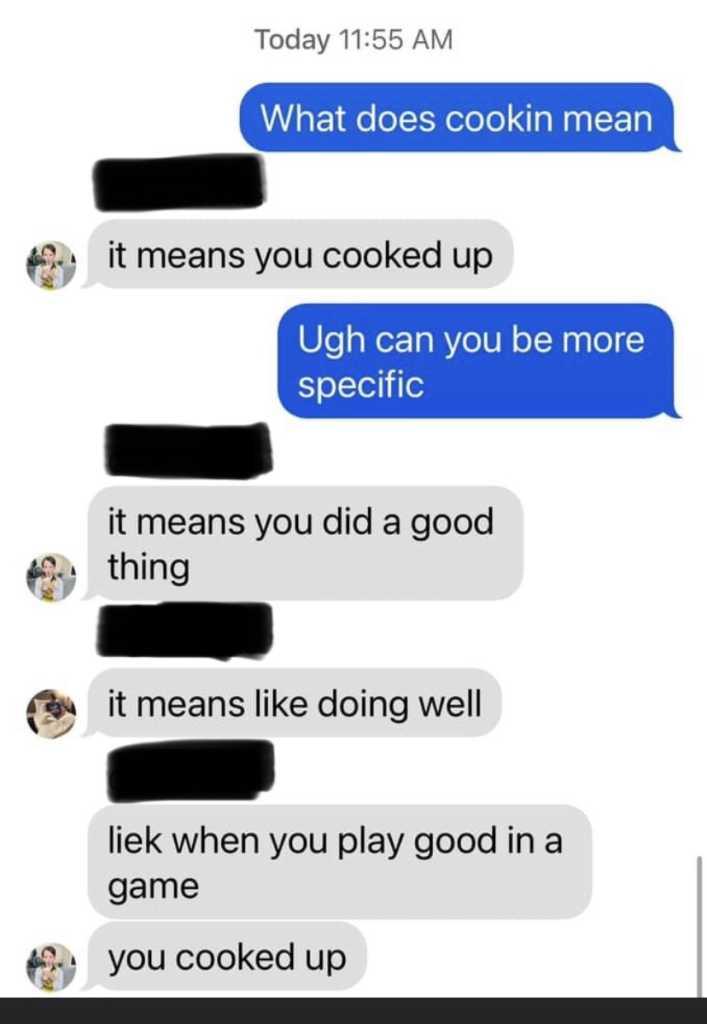From LOL To WTM? :: Decoding The Language Of Today’s Kids
I, like most millennial mommas, came of age when digital socialization was just taking off. Rewind back to 1998, and I’m selecting the perfect font and color combination for my AIM Away Message. It might have read something like, “BRB. Going to the mall.” In conversations prior, I might have used expressions like LOL, maybe even LMAO if I was especially amused. At one point, I was down with the lingo. Fast forward to today, and I was utterly clueless as a I overheard my 10-year-old and 8-year-old boys saying things like, “He cooked up” or “Bruh, you don’t even have rizz.” I sus (I didn’t use that correctly, did I?) that you might feel the same way, so I’ve done the research and put together this handy guide to help you crack their code. But don’t use it to talk to them. That would be totes cringe.
Positive Affirmations
Rizz: Short for charisma, this term is used when describing a person, usually a male, who spits good game or has swagger. How to use: My husband just put away all the laundry and did the dishes. He’s got mad rizz.
Zaddy: Remember when American Pie dubbed Stiffler’s mom a M.I.L.F.? Well, a zaddy is basically the male equivalent. How to use: So glad Christopher Meloni is back on Law and Order. He is such a zaddy. He probably has rizz.
Cooked up: If you’ve cooked up, it means you’ve done something well, i.e. played a good game. Alternative form: cookin’. How to use: My patient is doing so much better. I cooked up on that CPR!
Cold: Used to describe a talented person. A person who is cold often cooks up. You can also eliminate the d at the end if pronouncing all the letters makes you tired. How to use: He medaled in track. My boy is col'(d).

Bussin: Used as a compliment, primarily for food, but I’ve heard my kids apply it to a variety of situations. How to use: My dinners are bussin. I don’t know why these damn kids won’t eat.
Slaps: Kind of like when something is bussin, something that slaps is really good. Slaps tends to be used with regard to music, but I have heard it used to describe other things as well. How to use: The Norah Jones station on Spotify slaps!
The Truth Will Set You Free
On God: Say this when you want to emphasize that something is the truth. It’s the modern version of “I swear.” Alternative phrase: On church. How to use: On God, if y’all don’t clean up this house, no screen time for a week.
No cap: Another expression to promise truth. If you don’t want to involve deities, this one is a safe alternative. How to use: That child is out of control, no cap.
Facts: Truth is important to this generation. They are out here living their most honest lives. “Facts” is another expression of authenticity. But this one comes with quite the interesting play on words. You see, when you say, “Facts,” hilariously enough, it also sounds like the word, “fax.” And so some children find it amusing to say, “No printer” in response to “Facts.” But, this is next level stuff, so use judiciously. How to use: You need to get those grades up. Facts.
Bet: This is basically the same as responding, “For sure” or as we used to say back in my day, “Fa sho.” How to use: Am I ready for summer break? Bet.
Sus: I actually knew this. This one became widely circulated with the popularity of the game, Among Us. It directly conflicts with this generation’s value of truth. Sus is short for suspect or suspicious. Someone actin’ sus is probably being dishonest. How to use: I find it sus that you are already finished your homework.
Do What You’re Supposed to Do
It’s giving: Something is doing what it is supposed to do. Or, for something that is not doing what it is supposed to do, you would say, “It’s not giving.” How to use: I spent $70 on this push-up bra, and it is not giving.
Do too much: This one is meant for the annoying situation where one encounters an overachiever whose actions really have no purpose. Superlative form: doing the most. How to use: My husband is doing the most right now. We’re about to have company, and the house is a mess, but all of a sudden, he needs to vacuum his car and re-insulate the attic.
Cringe: When I was growing up, cringe was a verb. Alas, times have changed. It is now used as an adjective to describe awkward/embarrassing situations. How to use: My husband’s cargo shorts are so cringe.
WTM?: Stands for “What’s the move?” This is a way to say, “What’s the plan?” without actually having to exhaust yourself with that sentence. How to use: The kids are with the grandparents this weekend. WTM? Sleep? Catch up on laundry?
















